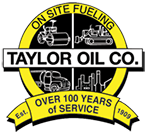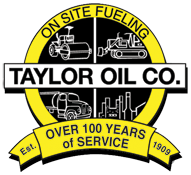Emergency Generators: Protect Your Business from Power Outages – Winter is not over – as evidenced by recent snow and rain storms in New England knocking out power in several communities. As a business owner, you can’t afford the downtime that comes with a power outage. Not only is it unexpected, it can last for days, which can really cut into your profit margin. Without power, you can’t operate normally. If you can’t operate, you can’t make money. It’s a vicious cycle, one that can be broken by proper planning.
So it’s time to ask yourself: is your business prepared to handle an emergency? If the answer is no, heed these important tips to be ready for any and all future disasters so you don’t miss a beat. A good solution is having a diesel-powered emergency generator on hand, which is one of the more reliable forms of emergency backup power. In fact, several international building codes and standards require the use of diesel generators for compliance.
Here are some ways you can ensure backup power in an emergency:
- Determine the risk: The first step is to identify your facility’s critical loads. Put a cost to the risks that come with utility power interruptions, losses of production, and down time.
- Install a standby generator: Even outages of a couple of seconds can disrupt production lines. Those disruptions naturally increase with the amount of time offline. Frequent outages can result in big cost implications for businesses. Diesel-powered generators give more power more readily when a power outage hits, compared with other types of generator drivers that can take up to two minutes to kick on. Diesel is the most cost-effective source when it comes to back-up power.
- Keep sufficient fuel storage on hand: Having enough fuel on hand is important, so make sure you have enough capacity on-site for up to several days of power outage.
- Maintain equipment: All generators should be maintained and tested regularly to ensure they operate when needed.
- Contract rental power: If you don’t have the space, capital or resources to install your own standby generator, consider contracting with an outside company for rental generator power.
- Double check your system: Even the biggest and most expensive generators don’t work underwater in the case of extreme flooding. Make sure your unit is ideally located, with a protected fuel source. Check and re-check connections and make sure you have the right gauge extension cord to handle the electrical load and distance.
- Only operate your generator outside: In order to be safe, you must use your generator in an outdoor area for proper ventilation. That’s because carbon monoxide fumes from generators build up in enclosed areas and cause sickness and even death.
- Check load: If you have added any new demands or critical circuits that need protection recently, or even new computers, you should look into updating your switchgear.
- Keep up with maintenance: Get all oil and filter changes done on time, every time, and fulfill all service contracts to ensure proper operation.
- Get the right permits: If operating a stationary unit, you must have the proper permits in order to do so.
- Make sure you always have enough fuel! Taylor Oil can help with this.
Contact Taylor Oil today for our rates and service options. Don’t get caught in the cold – or dark – in the event a power outage occurs.


